If we want to continue exploring this beautiful planet for years to come, we need to take some responsibility.
And yes, this includes (especially) when we travel. Responsible tourism should be at the forefront of everyone’s minds when they travel, particularly to fragile environments such as the Hawaiian Islands.
What is responsible tourism?
Tourism is a massive and growing industry, but it can have devastating effects on the places we visit.
There are 1 billion tourist arrivals in the world each year (growing at a rate of 60%). Just think of the increased pollution, soil erosion, corporate land buyouts, greenhouse gas emissions, and more.
So what is responsible tourism?
Responsible tourism means doing what is in your power to preserve and sustain the environments that you visit.
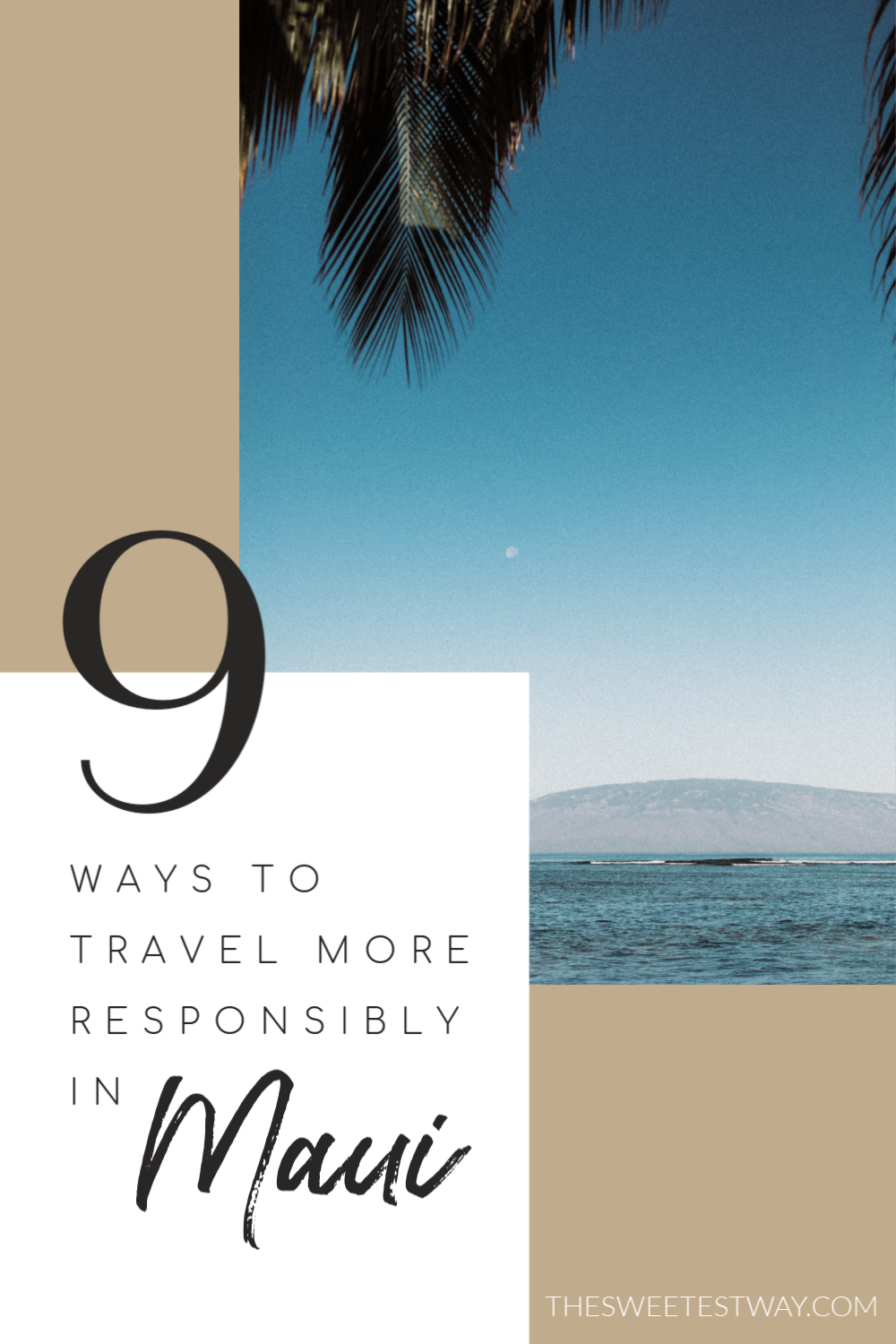
Responsible tourism in Maui
Last year, Maui received 3 million tourists.
It’s not surprising that so many people want to visit one of the most scenic islands on earth–and tourism is a huge part of the local economy.
But increased tourism also means more plastic washing up on the beach, formerly vibrant coral reefs bleaching with chemicals, endangerment of local wildlife like the green sea turtles, and hiking trail erosion after these millions of feet have made their requisite visits.
Does this mean you should cancel your trip to Maui? NO!
I firmly believe travel is what our world needs to show us our common humanity. Just keep in mind these responsible tourism tips for Maui and you’ll be very welcome here.
Use reef-safe sunscreen
You may have heard that the chemicals in some sunscreens are damaging coral reefs beyond repair.
Actually, Hawaii is the first US state to ban reef-damaging sunscreens, although this law won’t go into effect until 2021.
In the meantime, you can still make responsible tourism choices. When choosing your sunscreen, go with a reef-safe brand. Use non-nano Zinc oxide and low titanium dioxide based sunscreens only.
Check out these mineral sunscreen brands and grab some before your trip:
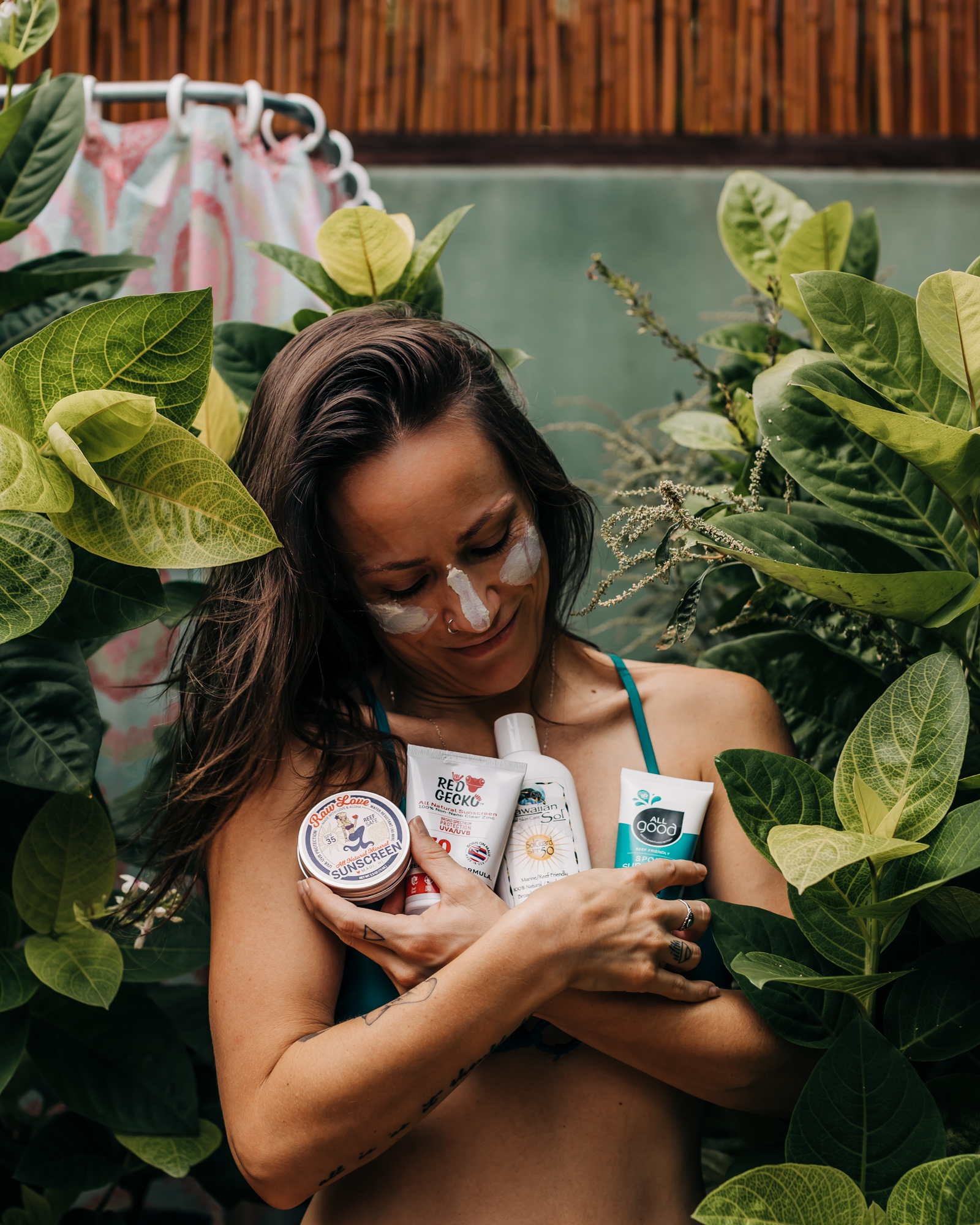
Carry a reusable straw, utensils and tupperware
Saying “no thank you” to plastic straws is a start, but it’s just one piece of a much, much larger problem.
Reducing our impact can go much further, and if you want to be a truly responsible traveler, consider investing not only in a reusable straw, but also a set of utensils and a container for leftover food.
You can buy a reusable straw from Amazon (stainless steel or bamboo are both good choices) or pick one up at a local business in Maui.
Belle Surf Cafe in Lahaina is an Ocean Friendly Restaurant, and you can buy both straws and utensils here while picking up a delicious coffee or yummy breakfast.
Many restaurants no longer offer plastic straws without you asking, but if they do, just leave the plastic straw untouched and go with your reusable straw instead. This will help limit undue plastic waste.
It may seem like a pain to carry around these extra items, but it’s a small price to pay to protect our oceans and planet.

Pick up trash when you see it
Unfortunately, not everyone practices responsible tourism.
Each year, more and more plastic and other trash washes up on the formerly pristine beaches of Maui. But the trash problem in Maui isn’t limited to the beaches–you’ll find litter just about everywhere.
Did you know it can take up to 1,000 years for plastic to biodegrade? And all the while, it’s leaching harmful chemicals into the environment.
Next time you go on a beach walk, bring a canvas bag with you and pick up trash as you see it. The more you pick up, the more trash you’ll notice!
The great thing about picking up beach trash is you may set into motion a chain reaction–other people who see you picking up trash will be inspired to do the same.
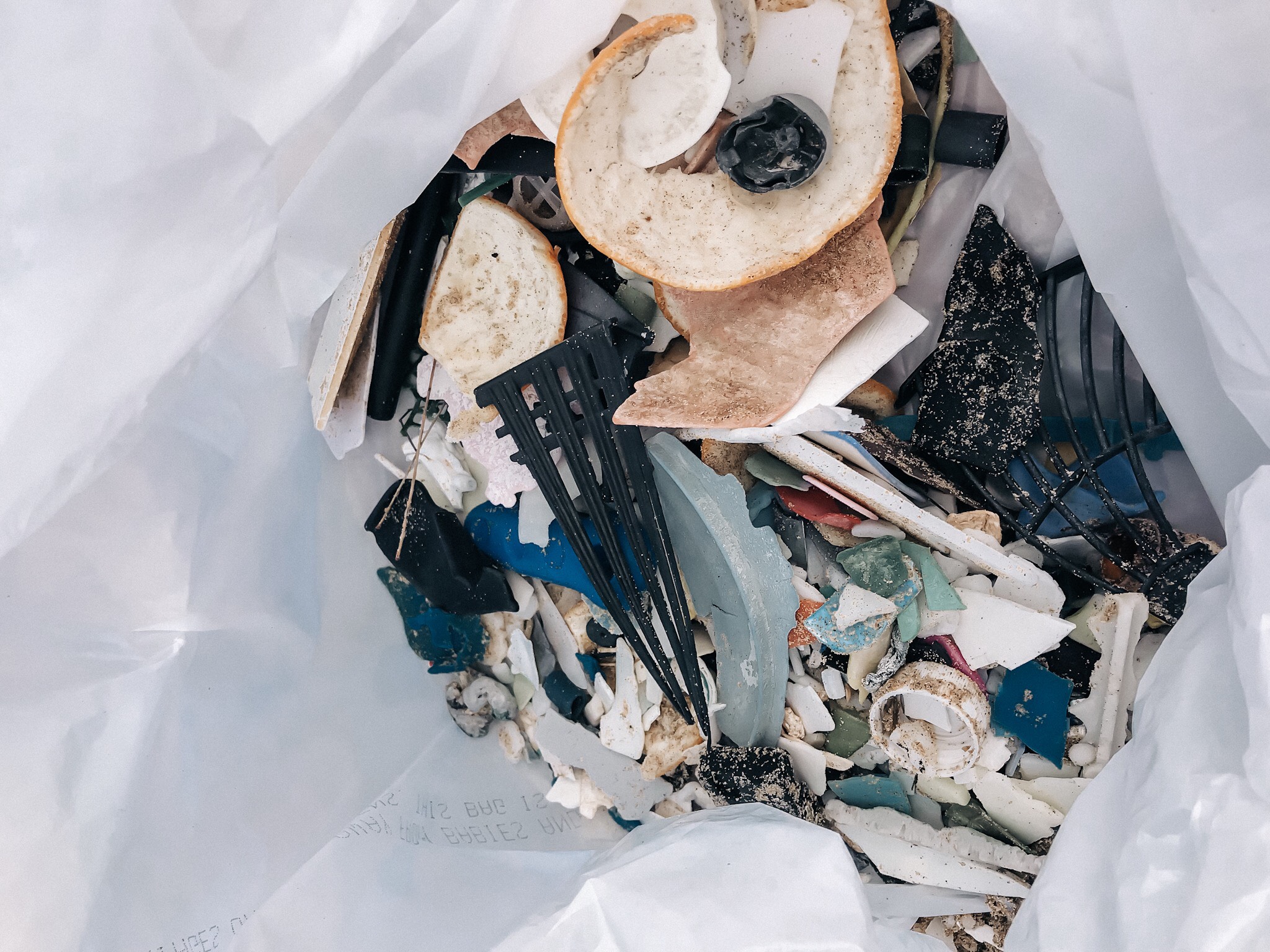
Pack it in, pack it out
This one’s pretty simple. If you packed it on your trip, you need to take it out with you. No excuses.
This goes for camping, hiking, beach going, snorkeling, whatever. Follow the simple principle of ‘leave no trace’ and you’ll be minimizing your environmental impact in the best way.
Never touch or feed wildlife
Of course, Maui is full of wildlife such as the famous Hawaiian Green Sea Turtles. You’ll see them resting on many of the beaches and swimming in the shallow waters just offshore.
But as tempting as it is, it’s very important to never touch or feed wildlife. To preserve a safe ecosystem balance, it’s best to avoid animals becoming dependent on people for food.
This will keep the animals safe in the long run.
Oh, and did I mention you’ll be handed a hefty fine ranging somewhere in the thousands if you’re caught touching or harassing a sea turtle?
That’s right, sea turtles are protected under state and federal law, in case you needed another good reason to keep your hands to yourself.
Keep a respectful distance at all times, never use a flash when taking pictures, and obey all posted signs to avoid entering protected wildlife areas.
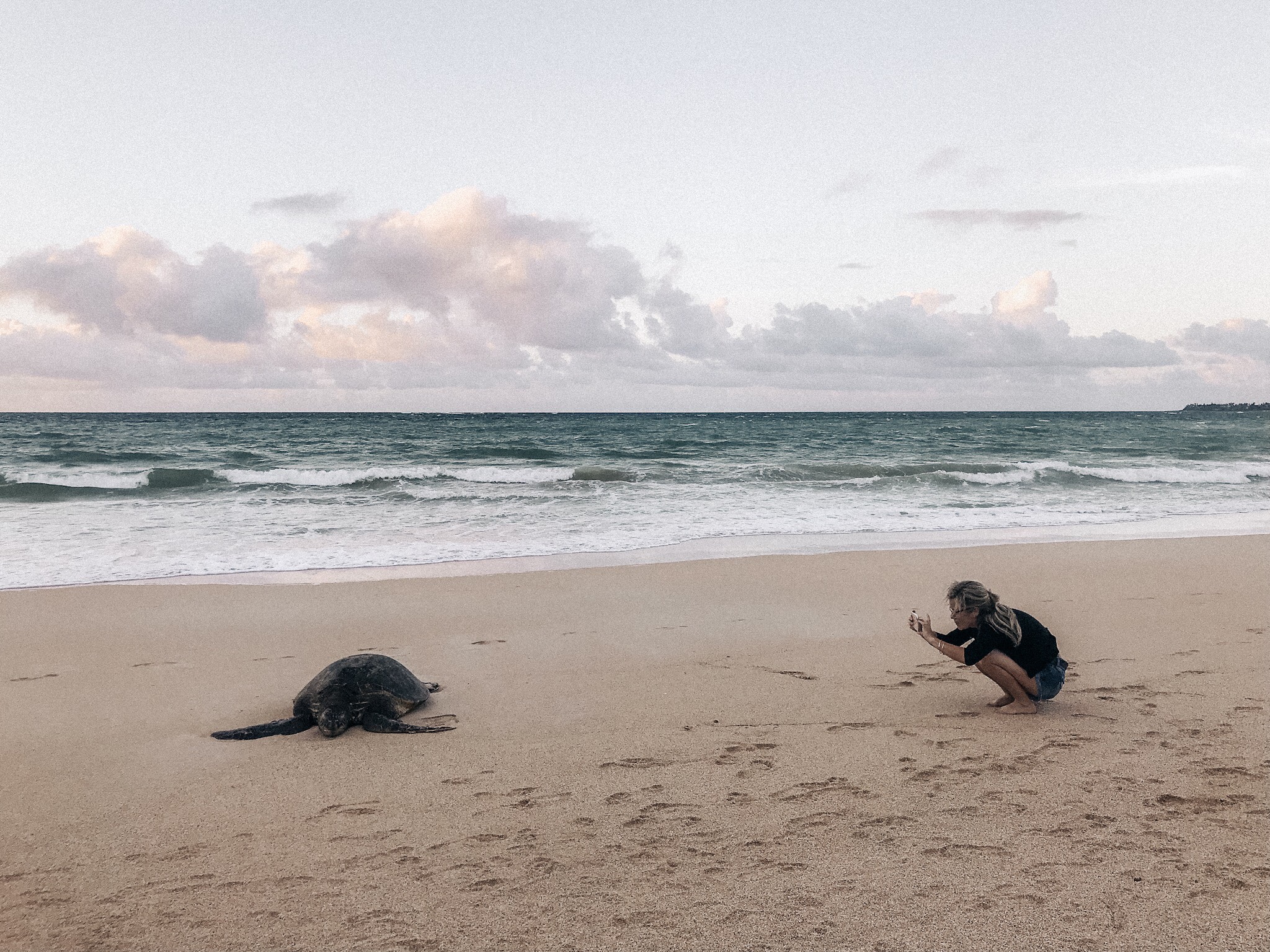
Patronize responsible tourism companies and businesses
If you really want to practice responsible tourism in Maui, put your money where your mouth is.
Tourism is a major economic driver on Maui, so support the businesses that are making positive environmental impacts on the island.
For example, when dining out, choose certified Ocean Friendly Restaurants.
Do your research online before choosing tour operators. Look for sustainable and culturally conscious companies such as Tour Maui, Maui Kayak Adventures, or Skyline Eco Adventures.
Always stay on marked paths and trails
It may not seem like it in the moment, but exploring off-trail can have devastating environmental impacts. Hello, erosion!
There are some incredible hiking trails across Maui but as tempting as it may be, it’s best to stay on the marked path. This will preserve the environment for years to come.
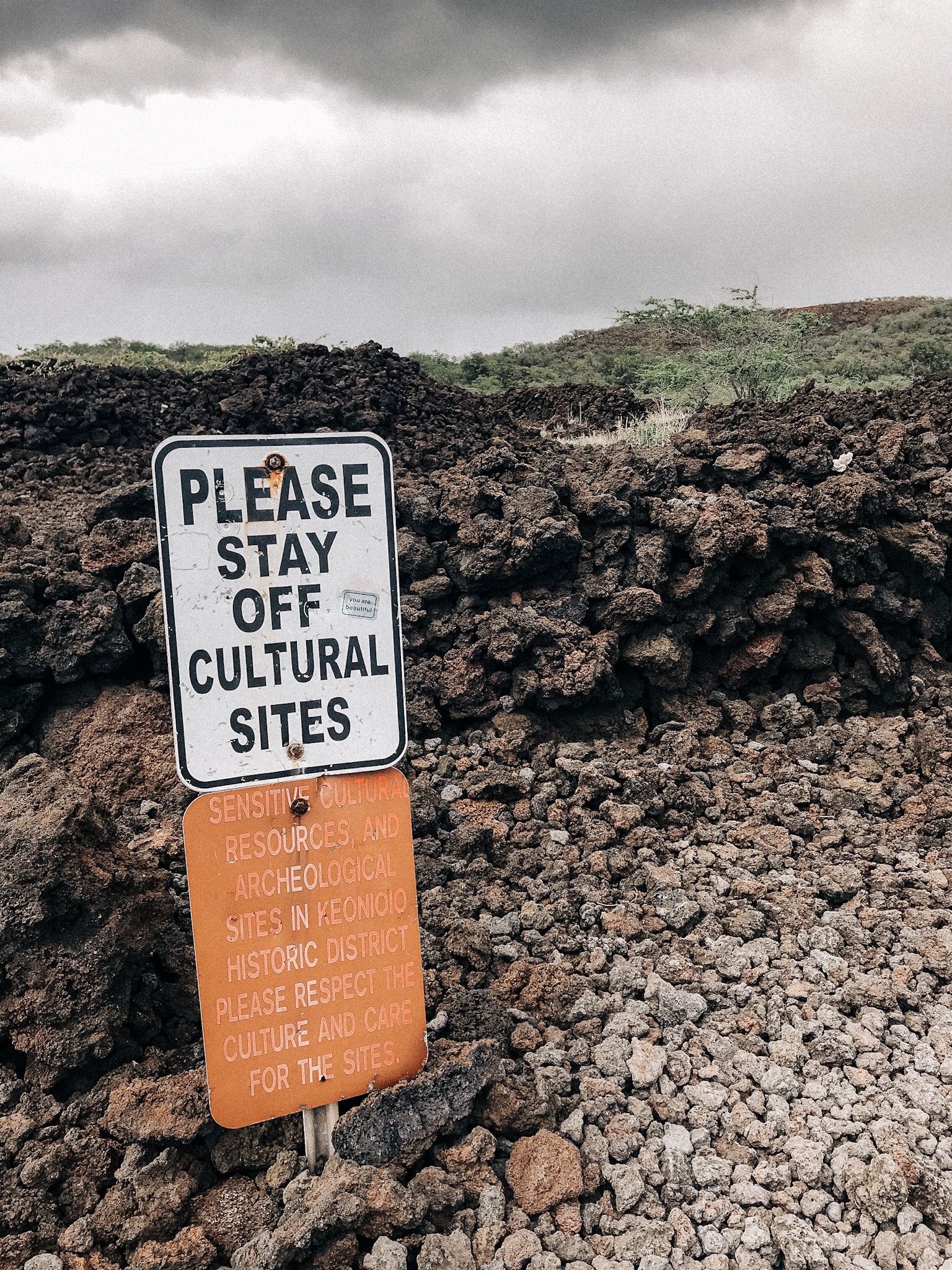
Recycle what you can
You’re likely to collect some cans, bottles, and more during your travels on Maui.
Responsible tourism is full of small sacrifices.
Although it may seem easy to chuck your Coke can in the garbage, instead tuck it into your bag and recycle it when you get the chance.
Maui is a very recycling-conscious community so it won’t be long until you come across a recycling bin, anyway.
Avoid geotagging exact locations on social media
Obviously, you want to show all your friends and followers the magic that is Maui–and share away. I certainly do!
But please avoid geotagging exact locations in your photos, particularly if you’ve discovered a natural ‘hidden gem.’
Many people use social media to inspire their travels, and although we want to show the world how beautiful Maui is, we also want to protect and conserve Maui’s environment.
A little bit of care and planning can go a long way when it comes to practicing responsible tourism on Maui.
It may not be possible to completely eliminate your environmental impact while traveling in Maui, but with these tips, you can certainly reduce it. Thank you for being a good steward of the Hawaiian ‘aina (land) and kai (sea).
What other responsible travel tips would you add to this list?
This post contains affiliate links.








